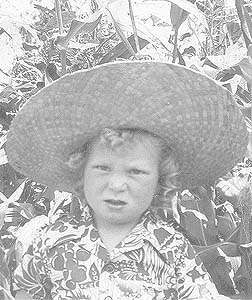
|

Clayton BessWho He?After a writer has written long enough, he finally has created a “body of work” that he can look at and conjecture, “Oh, say, maybe that’s what I am about.” Robert Locke and Clayton Bess must be, let’s see—a study of opposites and dichotomies, chiaroscuro, black v. white, masculine v. feminine, positive v. negative. For myself for example, in creating this website where I have co-joined this double-identity, I might take a mere glance at some of my titles and say, “Oh, of course! Now I see! Clayton Bess is really the dark side of my nature and Robert Locke, therefore, must be the bright side. Clayton Bess wrote Story for a Black Night, A Ghost in Silence, Lonely Island— all dark, grim titles. Robert Locke, on the other hand, wrote The Dolly, Rose Jewel and Harmony, On Daddy’s Birthday—all happy sounding titles. Finally I begin to understand myself.” Balderdash, and a big dash of it. First of all, those happy sounding titles are on very dark themes, rich with irony. Second, the dark titles are on books that are leavened with quite a lot of humor—except for Story for a Black Night which has perhaps two genuine laughs in the whole of it. Then there are the titles by both Bob and Clayton that do not get easily classified into dark and light: By Clayton Bess:
By Robert Locke:
And where in all of this do Robert’s adult novels fit in? The Blood Gospels and X Xx Zero—evoking ??? No, if there is anything to be gained by this superficial study in opposites, I think it must be the certainty that there is more—oh yes, my friend, far more—or perhaps less—yes, perhaps, far, far less—than is dreamt of in the dichotomous philosophies of these twain. And can anyone explain why race—black v. white—is featured so prominently in practically all the works of both Clayton Bess and Robert Locke? And can anyone please explain why both Robert Locke and Clayton Bess are so fascinated—as were Samuel and Mark—in twins? Twins, and sometimes a variety of them, are featured prominently in nearly half of their works. Hmmm. Twins: Robert Locke v. Clayton Bess?
Copyright © 2004 Robert Locke |